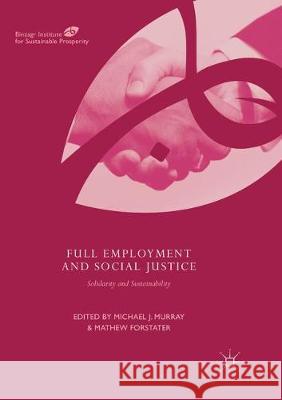Full Employment and Social Justice: Solidarity and Sustainability » książka
topmenu
Full Employment and Social Justice: Solidarity and Sustainability
ISBN-13: 9783319882291 / Angielski / Miękka / 2018 / 264 str.
Kategorie:
Kategorie BISAC:
Wydawca:
Palgrave MacMillan
Seria wydawnicza:
Język:
Angielski
ISBN-13:
9783319882291
Rok wydania:
2018
Wydanie:
Softcover Repri
Ilość stron:
264
Waga:
0.32 kg
Wymiary:
20.62 x 14.91 x 1.52
Oprawa:
Miękka
Wolumenów:
01
Dodatkowe informacje:
Wydanie ilustrowane











